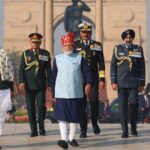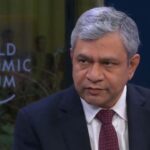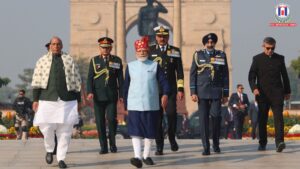
New Delhi : Amid rising diplomatic and military tensions in the wake of the deadly Pahalgam terror attack, Pakistan has accused India of drastically reducing the flow of water through the Chenab River, a vital source for its agriculture sector. Officials in Islamabad claim that the flow has been curtailed by nearly 90%, sparking fears of a significant impact on the early Kharif crop season.
The allegation was made by Muhammad Khalid Idrees Rana, spokesperson for Pakistan’s Indus River System Authority (IRSA), who told Bloomberg that the reduced water levels are “unprecedented.” He added that if the current situation continues, Pakistan may be forced to cut water supplies to farms by as much as 20%. The sudden drop in inflows has alarmed the IRSA advisory committee, which met on Monday to assess the crisis.
The dispute comes in the wake of a terror attack near Pahalgam in Jammu and Kashmir, in which 26 people—most of them tourists—were killed by militants. Following the attack, New Delhi reportedly suspended the Indus Waters Treaty (IWT), a longstanding agreement brokered by the World Bank in 1960 that regulates the sharing of river waters between India and Pakistan.
Although the IWT allows India to use the waters of the western rivers (Indus, Jhelum, and Chenab) for non-consumptive purposes like hydroelectric power generation, it requires that a certain flow be maintained for Pakistan. Islamabad now claims that New Delhi has exceeded its rights under the treaty, treating water as a geopolitical weapon amid escalating tensions.
“This is not just a technical issue—it’s a strategic one,” Rana said. “India typically holds some water for hydropower generation but releases it every few hours. What we are witnessing now is a total deviation from that norm.”
Pakistan’s Foreign Office issued a sharp warning, stating that any move by India to halt or restrict water flow would be viewed as an “act of war.” The statement has further heightened concerns about an already volatile situation between the two nuclear-armed neighbours.
India has not yet issued an official statement addressing the accusations. However, experts note that altering or suspending the treaty would have major diplomatic and humanitarian implications and could draw international attention.



















No Comments: